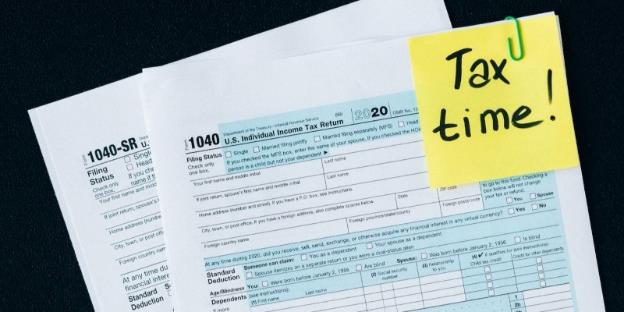Deadline Looming To File Late Pandemic-Era Tax Returns With No Penalties
Oct 15, 2023 By Triston Martin
In these unprecedented times, the COVID-19 pandemic has disrupted nearly every aspect of our lives. The pandemic's effects have been far-reaching, from lockdowns and remote work to supply chain disruptions and economic challenges. One area where it has left its mark is in the realm of taxes.
Many individuals and businesses have faced hardships that made it difficult to meet tax deadlines. However, there's good news on the horizon: a deadline is looming to file Late Pandemic-Era Tax Returns with no penalties.
This comprehensive guide will explore the details of this deadline, who is eligible, how to take advantage of this opportunity, and why acting now is essential. So, let's dive in and ensure you make the most of this unique tax relief provision.
Understanding the Pandemic's Impact on Taxes
Before delving into the specifics of the deadline for late Tax Returns, it's crucial to understand the broader context of how the pandemic has affected the tax landscape. The COVID-19 crisis led to many economic challenges, including job losses, business closures, and reduced income for many individuals and families.
As a result, the Internal Revenue Service (IRS) recognized the need for relief measures to support taxpayers during these challenging times. One such measure was the provision for filing Late Pandemic-Era Tax Returns without incurring penalties.

The Looming Deadline: What You Need to Know
Now, let's delve into the crucial details of this impending deadline and gain a comprehensive understanding of the relief it offers.
1. Eligibility Criteria
First and foremost, it's essential to determine whether you qualify for the opportunity to file Late Pandemic-Era Tax Returns without penalties. The eligibility criteria for this relief provision are relatively straightforward:
Individuals: If you are a taxpayer who experienced financial hardship due to the pandemic and could not meet your tax obligations on time, you may be eligible.
Businesses: Small businesses and self-employed individuals who faced pandemic-related difficulties in filing their Tax Returns can also take advantage of this provision.
2. Deadline Date
The impending deadline for submitting Late Pandemic-Era Tax Returns without incurring penalties is fast approaching. You must file your returns on or before December 31, 2023, to qualify for this relief.
Neglecting to adhere to this deadline will lead to the imposition of customary tax penalties and the accumulation of interest. This underscores the utmost importance of swift action and seizing this time-sensitive opportunity.
3. Types of Returns Covered
This relief provision applies to a wide range of Tax Returns, including:
Income Tax Returns: If you missed filing your federal income tax return for the 2020 or 2021 tax year, you can do so without penalties until the December 31, 2023, deadline.
Business Tax Returns: Small businesses, including sole proprietorships, partnerships, and corporations, can file their late Tax Returns without penalties, provided they meet the eligibility criteria.
4. How to File Late Returns?
Filing Late Pandemic-Era Tax Returns without penalties is a straightforward process. Here's a step-by-step guide:
Gather Your Documentation
Begin the process by meticulously gathering all vital financial documents, including but not limited to income statements, detailed expense records, and the pertinent tax forms essential for a comprehensive and accurate tax return submission.

Prepare Your Returns
Consider utilizing tax preparation software or seeking assistance from a tax professional for precise tax return preparation. Report any pandemic-related relief funds or credits you may have received.
File Electronically
To expedite your submission and streamline the process for greater speed and efficiency, it is highly advisable to opt for electronic filing. The IRS offers many e-filing options to facilitate and accelerate the filing process, making it a convenient and practical choice for taxpayers seeking a swift resolution to their Late Pandemic-Era Tax Returns.
Communicate Your Hardship
While filing your Late Returns, it's a good practice to communicate your pandemic-related hardship to the IRS. Although this step is not mandatory, it may help establish your eligibility for penalty relief.
Why You Should Act Now?
As the deadline for filing Late Pandemic-Era Tax Returns without penalties rapidly approaches, it's crucial to take action sooner rather than later. Here's why:
Penalty-Free Opportunity
This relief provision presents a unique chance to correct your tax filing status without facing the burden of penalties. Normally, missing tax deadlines leads to substantial fines and interest charges, substantially inflating your overall tax burden.
However, by taking action and filing your taxes promptly, you can steer clear of these extra expenses and ensure a smoother financial path.
Peace of Mind
Filing your overdue Tax Returns not only provides a sense of peace but also serves as a proactive step in resolving financial obligations. This action alleviates the stress and uncertainty often accompanying unresolved tax matters, offering you greater financial security and peace of mind.
Access to Stimulus Payments and Credits
Filing your overdue Tax Returns can open the door to eligibility for unclaimed stimulus payments and tax credits that you might have overlooked during the pandemic. These funds can be a lifeline, offering the vital financial relief you may have desperately needed but missed out on earlier. Don't underestimate the potential impact of these unclaimed benefits on your financial well-being.
Avoid Further Complications
Neglecting your overdue Tax Returns may pave the way for more substantial complications in the future. This inaction can potentially lead to the imposition of tax liens, wage garnishments, or even legal actions initiated by the IRS. Therefore, taking prompt action is pivotal in safeguarding yourself from the emergence of these problematic scenarios.
Conclusion
The COVID-19 pandemic brought unprecedented challenges, but relief measures like the deadline for filing Late Pandemic-Era Tax Returns without penalties are designed to ease the burden on individuals and businesses alike. If you meet the eligibility criteria, don't wait any longer; act now to take advantage of this unique opportunity.
Remember, the December 31, 2023, deadline is fast approaching, and missing it could mean facing unnecessary penalties and complications. Gather your documentation, prepare your returns, and file electronically to ensure a smooth and Penalty-Free process. Doing so will clear your tax obligations and secure your financial future.








